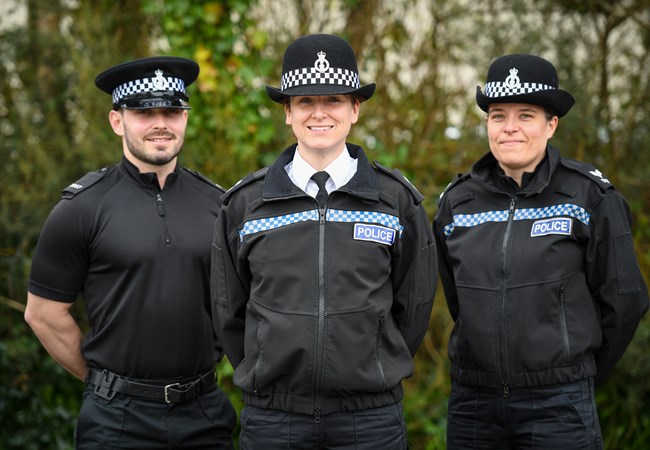
There are good opportunities for progression in police officer ranks. You must successfully complete your probationary period before you can be considered for promotion.
The ranks below are in order of progression after the rank of Constable/Detective Constable.
This is the first supervisory rank and is within the middle management level of the organisation. Most sergeants are responsible for a team of officers.
To be eligible for this rank, officers are required to pass a police promotion exam.
This is the second supervisory rank and is within the middle management level of the organisation. Most inspectors oversee multiple teams of officers take charge of major incidents.
To be eligible for this rank, officers are required to pass a police promotion exam.
A chief inspector is the third rank in middle management. Chief inspectors are typically responsible for multiple or larger teams across the force area.
Superintendent is the first rank in senior leadership. Superintendents are usually in charge of a section of command.
The second rank in senior leadership, a chief superintendent would typically be responsible for a geographical area of the force.
This rank sits within the Executive level of leadership. They are responsible for a specific function or business area.
A deputy chief constable is part of the Executive and supports the chief constable in the running of the force.
A chief constable is part of the Executive and is responsible for the effective running of the force.
